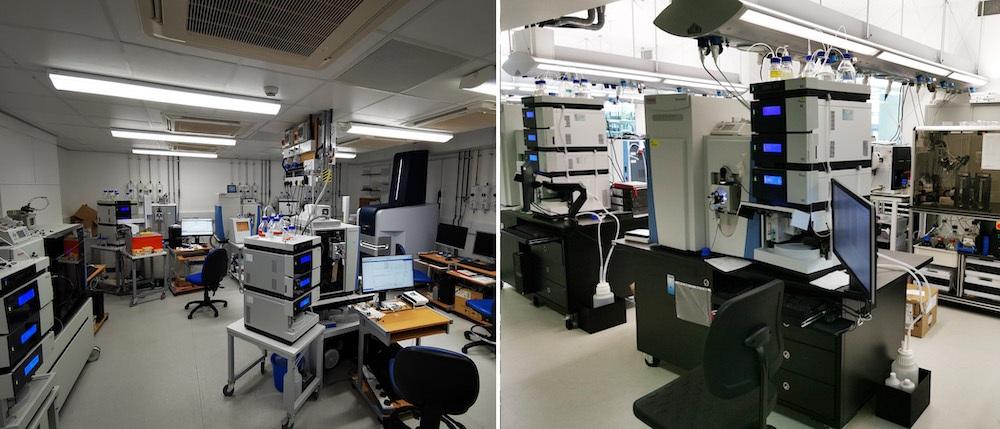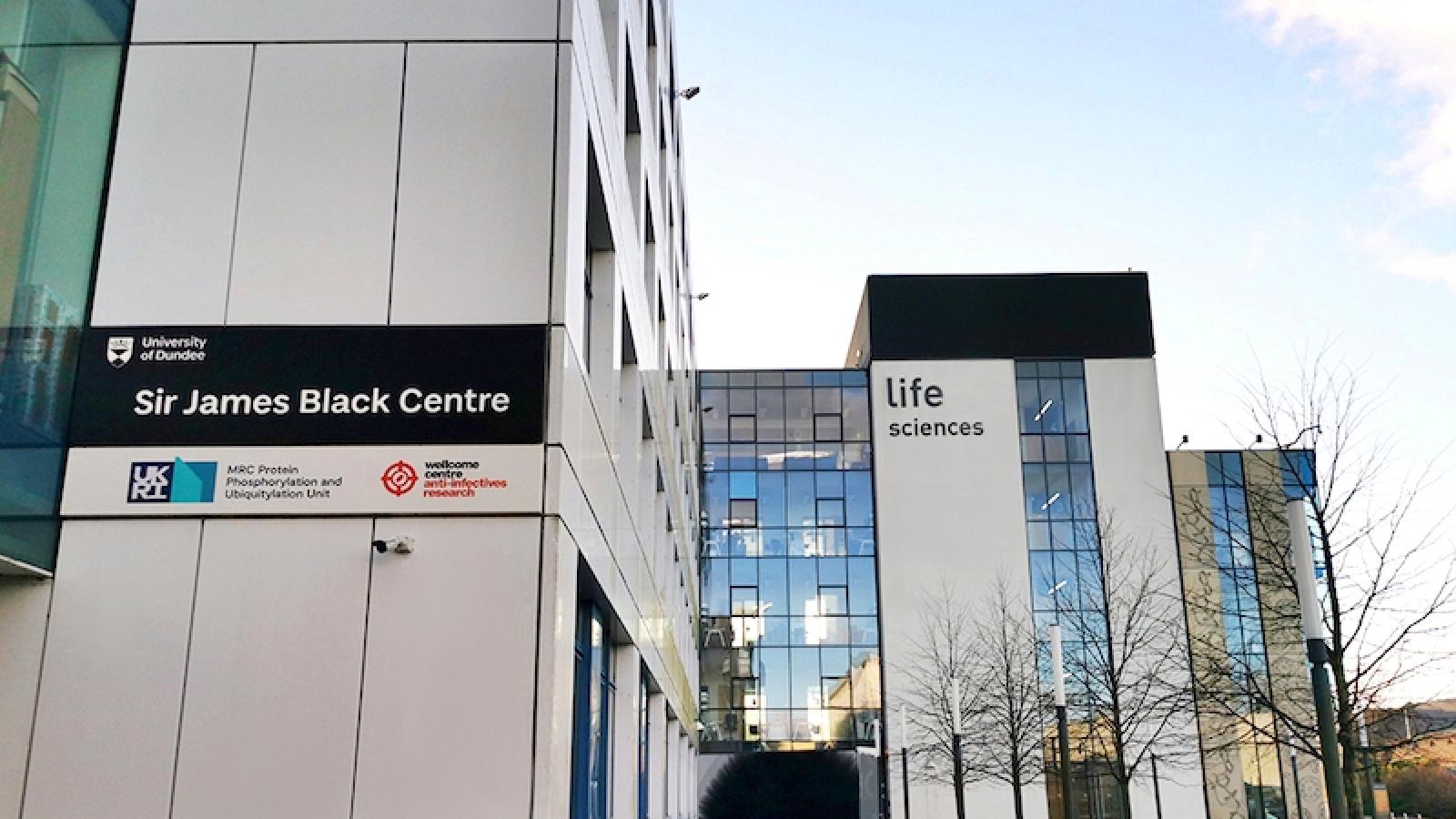New technologies are crucial to advancing medicine and bringing greater understanding of the diseases that lead to dementia. At the UK DRI, we’re equipping scientists and clinicians with the latest tools, and establishing nationwide technology infrastructure, to push for breakthroughs in neurodegenerative research.
We spoke to Dr Bethany Geary, Scientific Lead of the UK DRI Proteomics Platform, to find out more the potential of this initiative, the projects where its already making a difference and how researchers can access valuable expertise and resources.
Hi Bethany, please can you tell me about your background and motivation for getting into research?
My background is almost entirely in proteomics and mass spectrometry, with additional focus on bioinformatics. I had the opportunity to work with mass spec during my undergraduate degree at Dundee, and from there I was hooked by the whole thing! I found a PhD in heart proteome dynamics, looking at the protein synthesis and degradation rates within zebrafish hearts to learn about stress. I enjoyed the mass spectrometry parts and got more into the data analysis at that stage with programming using R and Python to make the most of the data.
My first postdoc was in Manchester at the Stoller Biomarker Discovery Centre and the Stem Cell Leukaemia Proteomics Laboratory, where I mostly looked for circulating cancer biomarkers in the blood. We were trying to develop new tests or metrics to stratify patients in addition to their clinical data. One way was using mass spec to assess protein signatures in the peripheral blood of patients going into clinical trials. We could see that you could monitor a certain subset of proteins related to a greater survival rate.
I was first attracted to the role leading the Proteomics Platform for the UK DRI at the University of Dundee, primarily by the scale and variety of work. However, dementia has run in my family for quite a few generations, and so does have a particular personal spot for me, with seeing how it affected my grandmothers. It feels worthwhile to work in this field, even if it's too late to help some of my family members, I can at least try and help other people, and maybe myself in the future.
What is proteomics and when would you use it?
Proteomics is the study of proteins on a large scale - many thousands of proteins – usually using mass spectrometry. Investigations using smaller numbers of proteins or looking at the effects on individual proteins tend to fall out of the proteomics definition, and maybe into cell biology. If you have one single protein of interest, a good selection of antibodies and set-up, then it can be easier to use alternatives to mass spectrometry. But, if you don’t have all these things established and you want fast and accurate results, then I’d recommend mass spectrometry.
There is a lot of opportunity, for instance, you can look at relative levels of a protein of interest compared to all others in your sample, or you can get absolute values and know exactly how much there is. If you want to look at interactors, there are various studies that can be set up to look at what your protein of interest is interacting with, whether it's based on proximity or binding.
What is the UK DRI’s Proteomics Platform?
The Proteomics Platform is a system that allows UK DRI researchers to access mass spectrometry instruments and bioinformatics expertise. Samples are processed either by Douglas Lamont within the FingerPrints facility at Dundee or by myself within the MRC Protein Phosphorylation Unit (PPU) led by Dario Alessi. We've got an enormous range of different techniques available to us, and we want to make these accessible to all the UK DRI, to drive new collaborations. It also allows us to access decades worth of experience in dealing with both study design, bioinformatics, as well as mass spectrometry techniques and even sample preparation techniques. The Platform therefore is designed for not only running samples but also helping with anything ‘proteomics’. Hopefully this internal collaborative platform can save all the groups time, money and energy, opposed to external services.

composed of the MRC Protein Phosphorylation Unit (left) and FingerPrints facility (right)
What projects are currently being worked on at the Platform?
There are lots of projects already signed up - 18 separate studies that are on my internal register. They cover a large range! Currently I am doing a lot of Tandem mass tag (TMT) work, looking for relative quantification going up to 18-plex with the latest technology. So you can have 18 separate channels that you can use to carry out a deep proteome level analysis to get about 10,000 proteins or so from cell lysates. The latest data independent acquisition (DIA) studies are looking comparable, and sometimes better, to TMT as well. This massively brings down the time and cost of projects.
We’ve been setting up some pilot work with the other major UK DRI platforms. With the IPSC Platform to Model Alzheimer’s Disease Risk (IPMAR) in Cardiff, we’re working to see if we can use proteomics to help provide a greater resource so researchers using these cell lines, can also access a bank of proteomics data and take that straight off the shelf to use in any studies they want.
We are also planning a collaboration with the Multi-‘omics Brain Atlas Project (MAP) at Imperial, where proteomics is being used to work out some of the relative differences between protein levels within the different brain regions, which I think could be really fascinating. Hopefully we’re getting that started up this year.
Also, while the Proteomics Platform was being set up, there were also a series of proteomics awards to encourage collaborations between UK DRI researchers and proteomics experts across the country including Dr Harry Whitwell at Imperial and Dr Richard Unwin at Manchester. We will be running the funding scheme again in 2022, so please look out for that!
How do researchers access the Platform?
We’ll start with an informal chat where we go over expectations for the project and discuss a little about protocols so researchers know what will be needed. From there, the process is fairly straightforward! It’s more a case of what samples can be processed. I advocate for the simplest step on the researchers end and more on my side because these are the sorts of techniques that we're doing routinely every day. For example, with cells, researchers just have to put them in lysis buffer, onto dry ice and then ship them straight to me. Most of the time that’s all we need. It tends to be very simple, but we’ll establish all the details at this initial discussion. You can also think of the Platform as a proteomics ‘helpline’ where you can call me up for advice too, even the bioinformatics side. I think researchers don’t necessarily know this resource exists so if they're doing some R or Python-based analysis of datasets, and they're stuck on something or they'd like to do something specific, then I'm here to help.
We're updating our instruments, looking at what new techniques we can use and if there's some papers that are doing something strange but amazing, we want to try it!Dr Bethany GearyScientific Lead of the UK DRI Proteomics Platform
What would you hope for the future of proteomics, and the Platform?
I think this platform is the first step of many great things, as it allows more groups to access these facilities and the expertise. I expect it to have a big impact because it can facilitate new collaborations, and just knowledge sharing between the different groups that wouldn't have occurred previously. It can hopefully have a positive knock-on effect on study design and grant applications.
We have also set up a proteomics experiment registry on the UK DRI Portal, so researchers can look up who is working on what project or experiment, and then seek advice. I think this is where we are headed in the future, and it’s not something that is widely done in any academic institution - to have that level of data and knowledge sharing. It's going to be interesting and exciting to see how it can improve going forward.
We, as a platform, are obviously keeping up to date and making sure that we remain at the forefront of the field. We're updating our instruments, looking at what new techniques we can use and if there's some papers that are doing something strange but amazing, we want to try it! I think the field of proteomics is only growing and it's brilliant that its more accessible than ever.
We would like to thank Dr Bethany Geary for taking the time to discuss the UK DRI Proteomics Platform. You can find out more about the Platform on the awards news article from 2021, the dedicated Proteomics Platform page on the Portal or by contacting Dr Geary directly at beth.geary@ukdri.ac.uk.
Article published: 16 February 2022
